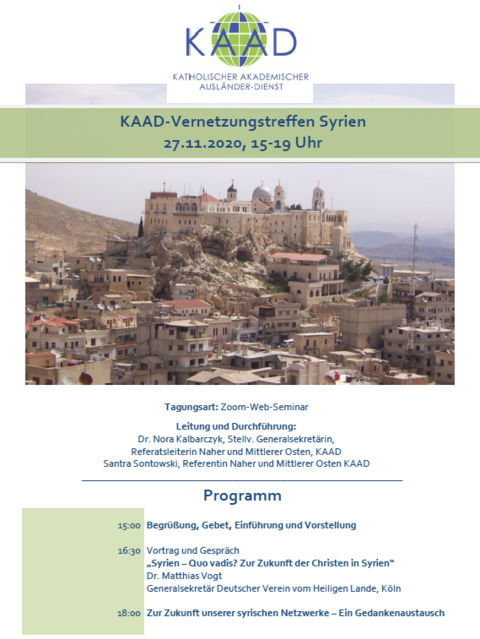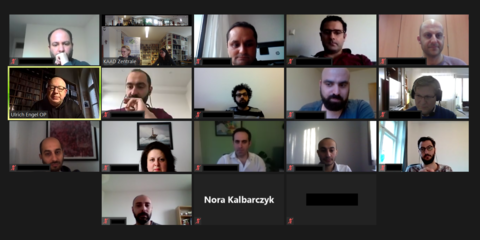Against this background, a networking meeting with Syrian KAAD scholarship holders and alumni living in Germany took place at the end of November, chaired by Dr Nora Kalbarczyk and Santra Sontowski. This meeting – a virtual event due to the pandemic – was intended to give the 17 participants a platform to exchange information on various issues.
The program was opened with a spiritual impulse from Father Prof Dr Ulrich Engel OP and an overview of KAAD’s work in Syria: Over the various decades, more than 350 Syrians have been supported in various programs. In the last years since 2015, one focus has been on the support of Syrian students in Lebanon and Jordan. Across all programs, Syria currently represents the largest group of scholarship holders in the Near and Middle East.
In the introduction round and the subsequent first exchange in small groups, the participants were able to pick up threads from previous encounters or get to know new faces.
The main part of the meeting was a lecture by Dr Matthias Vogt, General Secretary of the German Association of the Holy Land and author of the compendium “Christen im Nahen Osten. Zwischen Martyrium und Exodus” (Darmstadt 2019). His lecture “Syria – Quo vadis? On the Future of Christians in Syria” presented an analytical review of history, a description of the present situation and a questioning outlook. Thus, this lecture and the subsequent discussion laid the foundation for the further talks of the participants, which also dealt with the question of the role of Christians in the present and especially the future Syria.
A deeper exchange of ideas among the participants took place later in small groups: In addition to getting to know each other better, the participants also discussed which possibilities of network building under these special circumstances – in Germany as well as in Syria – are possible and useful. Different approaches for a continuous exchange and for networking into Syria were discussed and the next steps for a continuation of this event were considered.
Besides the echoes of mourning about the war and the present situation, the hope for a better future for Syria and for Syrians could be sensed. Thus, at the end of the meeting, an actual networking in the sense of a community could be noted – the hope for Easter, it exists.





